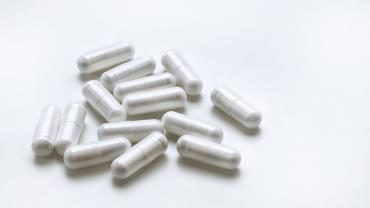
The gut-brain axis is a biochemical signaling pathway connecting the gut microbiome and certain aspects of mood and brain health. It is believed to influence cognitive functioning and mood through mechanisms related to the immune system, inflammation modulation, and cellular metabolism. Recent research has elucidated even more information related to the gut-brain axis.
The gut-brain axis may be influenced by psychological stress; alterations in the gut microbiome have been observed in the presence of stress in animal studies. Changes in stress responses have been observed in studies using germ-free animals, or animals that lack a microbiome. Prenatal stress exposure has also been shown to influence the infant’s gut microbial profile, allergic reactions, and future gastrointestinal symptoms.
Probiotics such as Lactobacillus plantarum (L. plantarum) P-8 have been shown in clinical studies to influence markers related to immune function and cognitive health. Decreased plasma levels of interferon-gamma, tumor necrosis factor-alpha, and cortisol, along with improvements in certain parameters related to memory and cognition have been observed in the presence of L. plantarum in clinical studies. However, the mechanism of action is not yet fully understood.
A randomized placebo-controlled study published by Ma and colleagues explored the efficacy of probiotic supplementation in the presence of psychological stress and anxiety. The goals of the study included investigating the mechanisms of action of the influences of probiotics on the gut-brain axis through microbiome mapping. The study involved supplementation with L. plantarum P-8 for 12 weeks in adults experiencing psychological stress.
Fecal samples from 43 individuals in the treatment group and 36 participants who received a placebo were analyzed at both baseline and at week 12. Study results indicate that the abundance of certain microbial communities shifted in the treatment group, but not in the placebo arm. This suggests that variations in certain microbial communities may influence the gut-brain axis, although future research with more participants needs to be conducted before conclusions can be made.
A systematic review and meta-analysis of clinical trials related to probiotics, depression, and anxiety further explored the gut-brain connection. When 23 clinical trials were analyzed, depression was lower in the probiotic treatment arms as compared to the placebo. Similarly, in 22 trials, anxiety was lower in the treatment arms that included probiotic supplementation when compared to a placebo.
The connection between the gut microbiome and brain function and mood health continues to be a robust topic of research. Probiotics may support immune health, cognition, and a healthy mood.
By Colleen Ambrose, ND, MAT